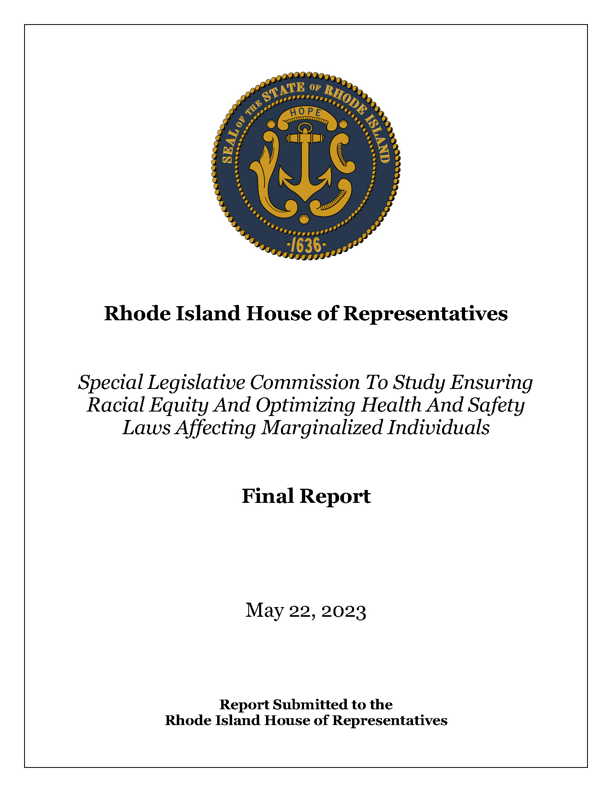Tell The New York Times: Sex Work Is Work
September 2, 2023
In August, Pamela Paul penned an opinion piece for The New York Times titled “What It Means to Call Prostitution ‘Sex Work’.” The op-ed was in response to a New York Post article that denounced recent New York bills to decriminalize consensual adult prostitution. The New York Post utilized fear-mongering tactics to depict New York City overrun by sex workers and their clients. Despite the article’s clear anti-sex work sentiments, the author referred to adults who consensually sell sex as “sex workers.” This choice of rhetoric particularly angered Paul, who then responded with her inflammatory op-ed in the Times.
In Paul’s misguided opinion piece, she proclaims that referring to prostitution as “sex work” legitimizes prostitution as a conventional job or profession. According to Paul, referring to a sex worker as anything other than a “prostitute,” “victim,” or perhaps a far more derogatory term like “hooker,” absolves sex buyers of their responsibility in what she views as an exploitative industry. Paul’s opinion aligns with that of a fringe group of radical feminists who believe that all sex work is exploitation, an assumption that strips sex workers of their autonomy. Paul, and those who share her belief, fail to understand how powerful and dangerous the stigma associated with prostitution can be. When Carol Leigh coined the term “sex work” in the 1980s, she did so in an effort to destigmatize the profession. The declaration that sex work is work affirms that sex workers are just like any other worker and thus should be afforded the same rights, protection, and respect. Using the term “sex work” does not deny the real potential for exploitation in the industry. After all, all workers — regardless of their industry — have the potential to be exploited. Exploitation is not exclusively tied to sex work nor is it ubiquitous within the industry, and blanket assumptions like Paul’s do real harm to consensual sex workers just trying to do their jobs.
Paul’s piece generated a range of responses from readers across the world praising and condemning her sentiment. Due to the onslaught of reader responses, the Times went on to publish a handful of readers’ responses. Henri Bynx, co-founder and co-executive director of the Ishtar Collective, penned the following letter to the editor in response to Paul’s piece. Unfortunately, The New York Times failed to publish Bynx’s letter from the perspective of an actual sex worker. We have published it here instead.
In “What It Means to Call Prostitution ‘Sex Work’,” Pamela Paul writes “the use of ‘sex work,’ … effectively increases the likelihood of harm for a population that has already suffered so much.” I’m a sex worker and, in reality, statements like Paul’s make sex work and my daily life dangerous by reinforcing the notion that sex workers, not all of whom are women, are unable to make choices for themselves and that prostitution is done to them.
Like Paul, I am frustrated by how little attention is paid to dismantling “systems of exploitation.” Racism, poverty, discrimination and structural inequities are the root causes of trafficking, not the sex industry, and efforts to abolish it through criminalization actually perpetuate violence and exploitation. UNAIDS, the Global Alliance Against Traffic in Women, the UN Special Rapporteur on the Right to Health, the World Health Organization and other leading human rights organizations all recommend decriminalizing consensual adult sex work to decrease trafficking. Decriminalization is urgently needed and it is unfortunate, since we’re all working to eliminate trafficking, that this critical reform is hindered by stigmatization and inflammatory rhetoric, such as that in Paul’s piece and the New York Post article which prompted her writing.

DSW Community Engagement Consultant Henri Bynx
DSW Newsletter #49
RI Legislative Study Commission Releases Report Recommending Reforms to Prostitution Laws

The European Court of Human Rights Agrees To Hear Case Brought by Sex Workers

Tell The New York Times: Sex Work Is Work

DSW and Allies Educate NY Legislators on the Critical Need for Immunity Laws

DSW Newsletter Archive
Opinion: Sex-worker immunity would have helped Gilgo Beach probe | Newsday
By Melissa Sontag Broudo
Guest essay
Updated July 25, 2023 7:36 pm
The recent arrest of Rex A. Heuermann in the Gilgo Beach murder investigation has residents expressing relief that a killer has finally been apprehended.
But many are asking why it took so long. One significant reason is the dysfunctional relationship law enforcement has with sex workers. The trajectory of this case illustrates the need for police to listen to sex workers. Ideally, the recent news that Suffolk County Sheriff Errol Toulon Jr. is interviewing incarcerated sex workers who had contact with Heuermann signifies the start of an effort to improve law enforcement’s relationship with them.
When bodies first turned up on Gilgo Beach, the Suffolk County Police Department, under the leadership of now-disgraced former Police Chief James Burke, refused to grant sex workers immunity from prostitution charges if they came forward with information. Had law enforcement prioritized potential leads over arresting sex workers, this case might have been resolved years ago.
To add insult to injury, Dominick Varrone, then Suffolk’s chief of detectives, suggested at a news conference that the general public could remain at ease because the killer was only targeting a very specific type of individual. This claim, dismissive of the value of the lives already lost, and disrespectful to their suffering families, reflected a culture of dismissiveness of sex workers.
In contrast to Burke, current Police Commissioner Rodney K. Harrison took the case more seriously, reviving the investigation and working collaboratively with the victims’ families. His actions ultimately led to Heuermann’s arrest.
Sadly, the dysfunctional prejudices and deficient policies in Suffolk that left this alleged killer on the loose are apparent across the state.
Because many in law enforcement place little value on the lives of sex workers, they are rarely willing to work with them to resolve crimes, let alone grant them immunity to provide valuable information and testimony. This makes it unlikely sex workers will approach law enforcement about crimes they have observed, or have been subject to, leaving them and the community at large at greater risk.
While the Gilgo Beach case was a law enforcement failure, the actions that led to Heuermann’s arrest reflect enlightened law enforcement practices that provide hope for catching predators more quickly. Hopefully, Toulon’s information-gathering from sex workers can help lead to further charges against Heuermann or other killers.
A huge step in support of this enlightenment would be enacting state legislation, introduced in the State Senate and Assembly, to provide immunity for sex workers who come forward with evidence of a crime.
This legislation, modeled after a successful New York law that provides immunity for users of illegal substances who report a crime, would provide sex workers with protection from arrest for prostitution if they come forward to report crimes. Nine states have passed similar immunity laws in recent years, and several other states introduced legislation this year.
Criminalizing and stigmatizing sex workers does not make anyone safer. It is time New York lawmakers ensure that the most heinous crimes never again go unsolved because those who have information are stigmatized and devalued. Laura Mullen, co-founder of the Survivor Advisory Board and an anti-trafficking services advocate at the Empowerment Collaborative of Long Island-Vibes in Suffolk County, recently said, “The immunity bill passing will help others like me who were victims. I felt like my voice didn’t matter, and I didn’t feel safe enough to speak about the unthinkable acts committed around me and to me.”
Our state lawmakers should heed Mullen’s words and enact the immunity bill when they return in January.
This guest essay reflects the views of Melissa Sontag Broudo, legal director of Decriminalize Sex Work.
